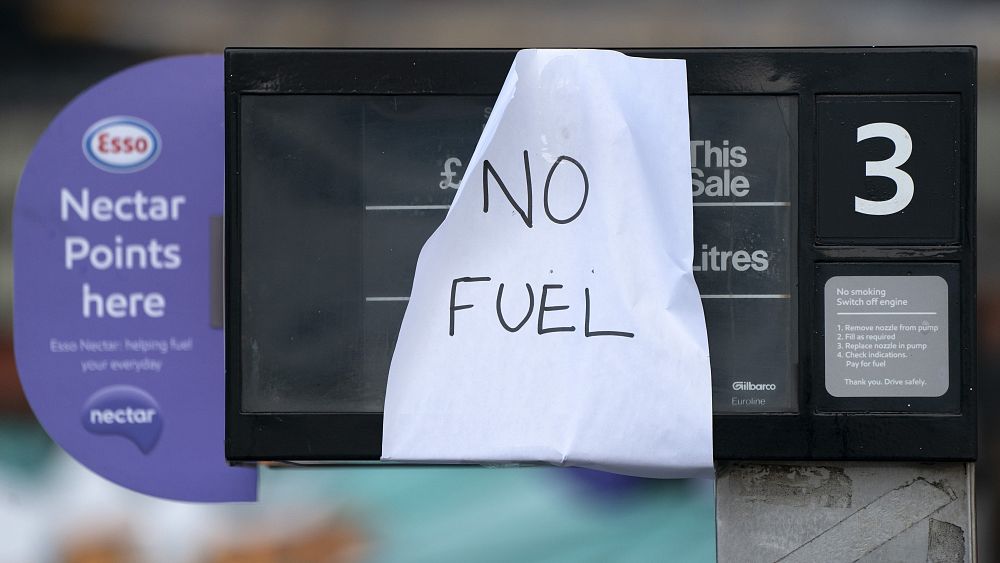
The British army was put on standby on Monday evening to help ease fuel supply chain issues caused by a shortage of truck drivers as scenes of panic buying were observed across the country.
The government said in a statement that a “limited number of military tanker drivers” were to be put “on a state of readiness and deployed if necessary to further stabilise fuel supply chain.”
The military drivers are to receive training to enable them to work with industry, it added.
The government has also announced that licences for heavy goods vehicles (HGV) expiring before December 31 will be extended by a month. Licences are ordinarily valid for up to five years and require the holder to take a refresher course and an exam — which takes three days — in the final year of validity to be renewed.
Business Secretary Kwasi Kwarteng said that “while the fuel industry expects demand will return to its normal levels in the coming days, it’s right that we take this sensible, precautionary step.”
“The UK continues to have strong supplies of fuel, however we are aware of supply chain issues at fuel station forecourts and are taking steps to ease these as a matter of priority,” he added.
Back to normal ‘in the coming days’
The measure is the latest in a series the British government has taken in recent days to ease supply chains issues for fuel. Over the weekend, it announced that it would issue 5,000 short-term visas to lorry drivers and fund training for 4,000 people to be new drivers.
Competition rules for the fuel industry were also temporarily waived on Monday by the government to allow industry players to better coordinate their efforts to deliver fuel to the places most in need.
Supply chain issues, caused by a shortage of truck drivers, have also impacted the food sector. The shortage is caused by a combination of factors including the COVID-19 pandemic, the country’s exit from the European Union which has led to an exodus of foreign workers, and an ageing workforce.
The Petrol Retailers Association, which represents almost 5,500 independent outlets, said Sunday that about two-thirds of its members had run out of fuel, as the truck driver shortage set off rounds of gas panic-buying.
The Conservative government insisted blamed the problems on consumer behaviour.
“The only reason we don’t have petrol on the forecourts is that people are buying petrol they don’t need,” Environment Secretary George Eustice said.
Major fuel firms, including BP, Shell and Esso, said in a joint statement that they expected demand for gas to “return to its normal levels in the coming days.”
“We would encourage people to buy fuel as they usually would,” the statement said.
‘EU stability’
But critics urged the government to get fuel flowing so the shortage does not have damaging spillover effects on health care, police operations and other crucial sectors.
Dr. Chaand Nagpaul at the British Medical Association said health care workers and other essential services staff should be “given priority access to fuel so they can continue their crucial work and guarantee care to patients.”
Christina McAnea, general secretary of the Unison trade union, urged the government to use its emergency powers to designate gas stations for key workers.
“Ambulance crews, nurses, care workers, teaching assistants, police staff and other key workers mustn’t be left stranded or forced to queue for hours simply to get to a pump,” she said.
Ruby McGregor-Smith, president of the Confederation of British Industry, has also criticised the government’s three-month visa scheme as “the equivalent of throwing a thimble of water on a bonfire”, arguing it isn’t long enough to entice foreign workers.
Radu Dinescu, general secretary of the National Union of Road Transporters in Romania, said Romanian drivers — who worked in the U.K. in large numbers before Brexit — now “prefer EU stability.” Romania is a member of the EU and Dinescu said its drivers can earn high salaries working in France or Germany.